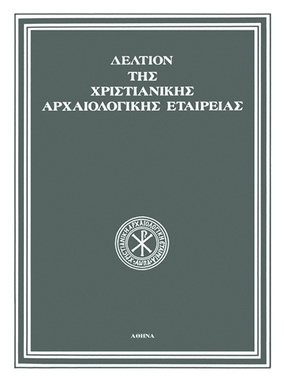Αδημοσίευτα βυζαντινά μολυβδόβουλλα του Βυζαντινού Μουσείου
Part of : Δελτίον της Χριστιανικής Αρχαιολογικής Εταιρείας ; Vol.38, 1999, pages 285-290
Issue:
Pages:
285-290
Parallel Title:
Unpublished Byzantine Lead Seals in the Byzantine Museum, Athens
Section Title:
Articles
Author:
Abstract:
The Byzantine Museum's collection of lead seals is small.Some items in the collection are of particular interest, asthey refer to individuals who are mentioned in Byzantineliterary sources, and several of these have already beenpublished (Zekos). The most important of these seals refersto a Peloponnesian spatharokandidatos and general namedTheoktistos, who has been identified as the protospathariosTheoktistos Vryennios. Eleven recently discovered Byzantine lead seals span a very wide chronological range, fromthe early Christian period up to the Palaeologan era. Theyinclude: two imperial seals belonging to Andronicus IIPalaeologus; one from the church administration of AgiaSophia in Constantinople, 12th century; two belonging toJohn Atzimes, 12th to 13th century, which were in the possession of a Byzantine aristocrat unmentioned in othersources; one from the monastery of the Virgin 'Theoskepastos' in the Pontus region, second half of the 13th century,which has increased our knowledge about this famous monastery of the Pontus; and two others bearing the titleschartoulanos (7th century) and patrikios (8th century). Twoof these eleven seals are not discussed in the present studyand date to later periods, the first belonging to FrancescoFoscati (1423-1457), the Doge of Venice, and the other toPatriarch Kallinikos in the 18th century.These lead seals provide precise and reliable information thatsheds valuable light on such vital aspects of Byzantine societyas its bureaucracy, the movement and geographical range ofcorrespondence, the aristocracy, and religious iconography.The publication of these holdings is in keeping with theByzantine Museum's broader goal of demonstrating thepotential of its smaller collections in the hope of expandingthem through new purchases, donations, and excavations.
Subject:
Subject (LC):




